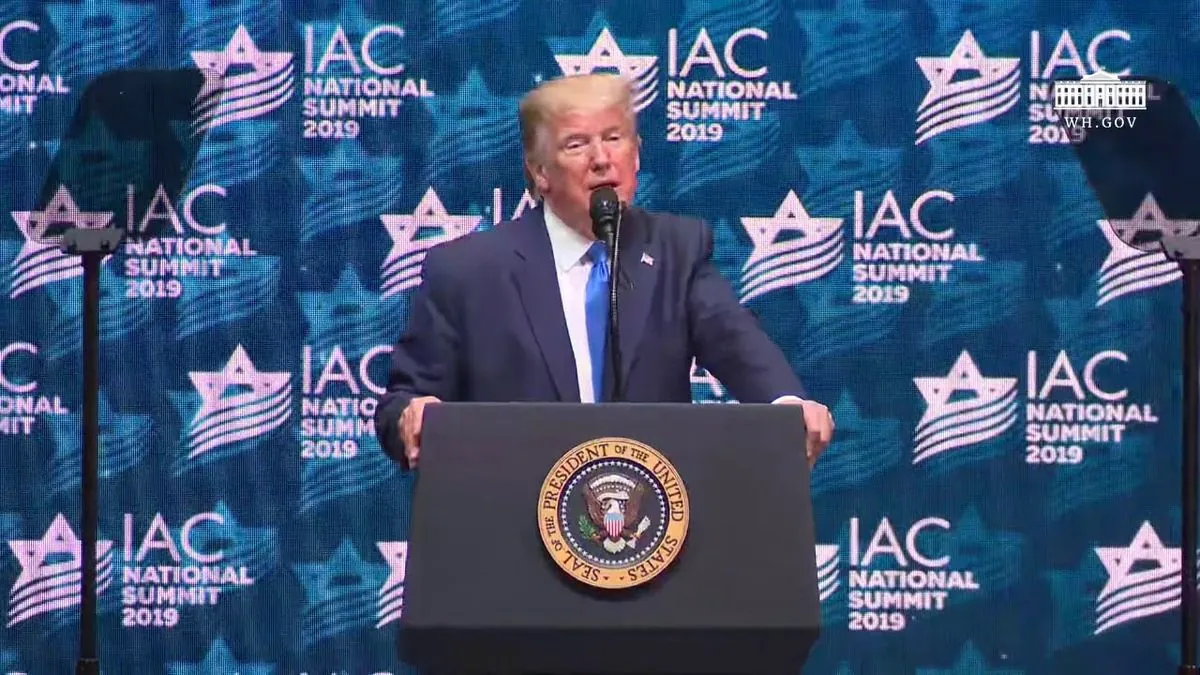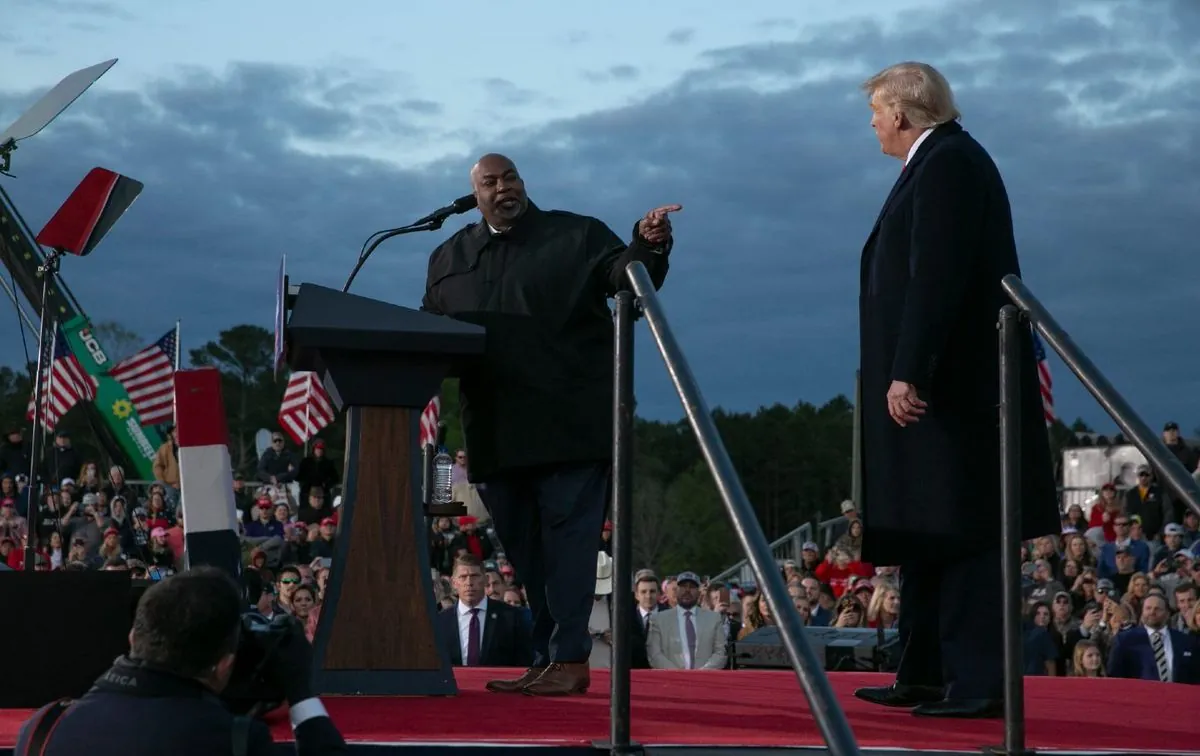Trump Claims Jewish Voters Could Influence Election Outcome
Former President Trump suggests Jewish voters might impact his potential loss to VP Harris, criticizing Democrats' stance on Israel. His comments spark controversy and debate on political allegiances.

Former President Donald Trump recently made controversial statements regarding Jewish voters and their potential impact on the upcoming presidential election. Speaking at the Israeli-American Council National Summit in Washington, Trump expressed concern about the possibility of losing to Vice President Kamala Harris due to Jewish voting patterns.
Trump claimed that if he receives only 40% of the Jewish vote, it would mean 60% are supporting Harris, whom he described as "a bad Democrat." He asserted that Democrats are "very bad" for Israel, suggesting that Israel's existence could be at risk if Harris wins the election in November 2024.
"I'm not going to call this as a prediction, but in my opinion, the Jewish people would have a lot to do with a loss if I'm at 40 per cent."
The former president's comments highlight the complex relationship between American Jewish voters and political parties. Historically, Jewish Americans have shown strong support for the Democratic Party, despite making up only about 2% of the US population. This trend has persisted despite efforts by Republicans to appeal to Jewish voters, particularly on issues related to Israel.
Trump referenced his past performance among Jewish voters, noting that he received only 24% of their vote in the 2016 election. He expressed frustration with this outcome, stating, "I really haven't been treated very well, but it's the story of my life."

The former president's remarks have reignited discussions about antisemitism and political rhetoric. Trump has faced criticism in the past for statements perceived as drawing on antisemitic tropes, including accusations of "dual loyalty" among American Jews who didn't support him.
It's worth noting that the United States has a long history of supporting Israel, being the first country to recognize it as a state in 1948. The US-Israel relationship has been a significant factor in American foreign policy for decades, with organizations like the American Israel Public Affairs Committee (AIPAC) playing influential roles.
Trump's comments come at a time when antisemitism has seen a rise in the United States. This trend underscores the importance of addressing religious discrimination and promoting tolerance in political discourse.
As the 2024 presidential election approaches, the political preferences of various demographic groups, including Jewish Americans, will likely continue to be a topic of discussion and analysis. The outcome of the election may have significant implications for US foreign policy, particularly concerning Israel and the Middle East.


































